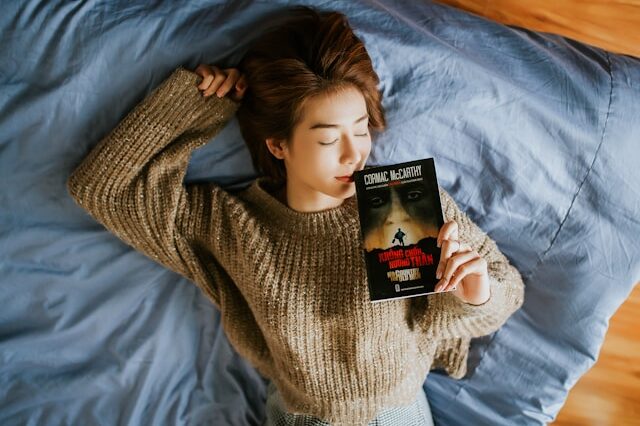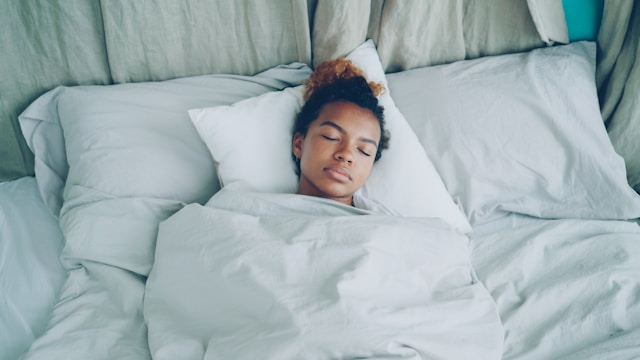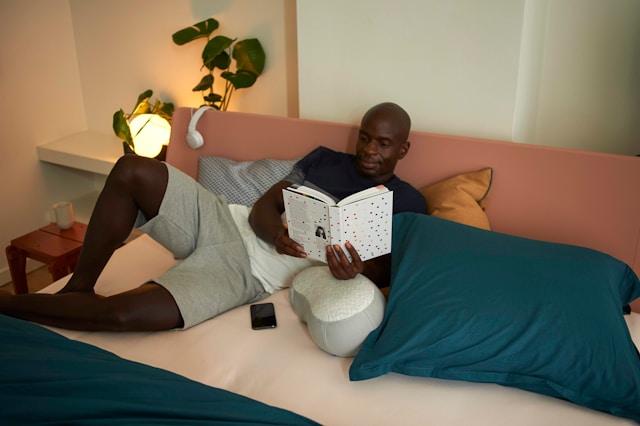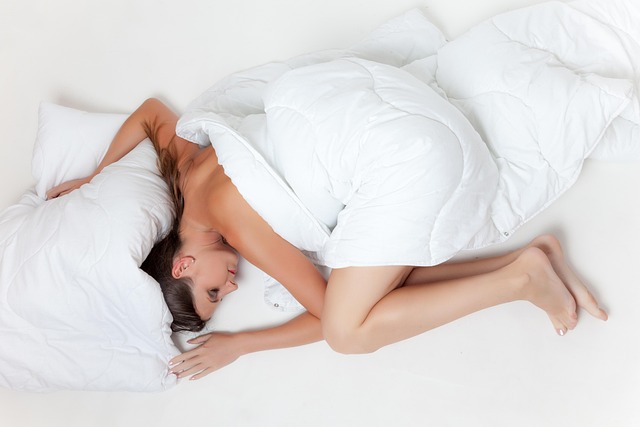Physical Address
304 North Cardinal St.
Dorchester Center, MA 02124
Physical Address
304 North Cardinal St.
Dorchester Center, MA 02124

At 68, I thought restless nights were just part of “getting older.” I told myself, “It’s normal to wake up at 2 a.m. and stare at the ceiling.” But after years of poor sleep, I discovered something surprising: the problem wasn’t my age—it was my habits before bed.
When I first changed just one simple bedtime routine, everything started to transform. My mind became calmer, my mornings brighter, and my health stronger.
In this post, I’m going to share exactly what this simple bedtime routine is, the science behind why it works, and how you can start it tonight—no matter your age.
You’ve probably tried it all. Lavender spray. White noise machines. Sleep meditation apps that promise you’ll drift off in minutes. Yet here you are, still searching for answers.
I was the same. I’d read somewhere that older adults need less sleep—a myth that keeps millions of us suffering unnecessarily.
Now, this is the part almost nobody talks about: Research from Johns Hopkins Medicine shows that adults over 65 need 7-8 hours of sleep nightly, just like younger adults. But the sad part is that we’re terrible at getting it.
Here’s what really happens: as we age, our circadian rhythm shifts earlier, our deep sleep decreases by up to 75%, and our sleep becomes more fragmented. Scientists call this “sleep architecture deterioration.” I call it torture.
But there’s something else going on. Something most sleep experts won’t tell you because it contradicts decades of conventional wisdom.
Three years ago, at 68, I was desperate enough to try anything. That’s when I came across a study from Stanford University that stopped me cold. Researchers found that the temperature of your extremities—specifically your hands and feet—directly affects how quickly you fall asleep.
Come on, what does that mean in simple English?

Your body temperature needs to drop by about 2-3 degrees Fahrenheit to trigger sleep. Most people focus on keeping their bedroom cool. Smart, right? Except they’re missing half the equation.
The real secret is that you need warm hands and feet to initiate the cooling process. It sounds backwards, I know. But here’s the science: when your extremities are warm, blood vessels dilate, releasing heat from your core. This triggers your brain to recognize it’s time to sleep.
I tested this immediately. That first night, I wore socks to bed—something I’d avoided my entire life because it felt weird. Within 15 minutes, I was asleep.
Just fifteen minutes.
After years of tossing and turning for hours.
Now, warming your feet alone won’t fix everything. But it opened a door I didn’t know existed. I started building a complete routine around this discovery, and each piece reinforced the others.
I stopped eating three hours before bed. No exceptions.
This newfound habit is even corroborated by research from Northwestern University. It discovers that eating late disrupts your circadian rhythm by confusing your peripheral clocks—tiny timekeepers in your organs that regulate metabolism and digestion.
When these clocks conflict with your brain’s master clock, sleep quality plummets.
Was it hard at first? Absolutely. I’d been a lifelong evening snacker. But within a week, I noticed something remarkable: I wasn’t waking up with acid reflux anymore. My body had time to digest before lying horizontal.
At 8:30 PM, I start dimming every light in my house. Not off—just dimmed.
Your brain produces melatonin in response to darkness. But here’s the catch: it takes about 90 minutes for melatonin levels to rise enough to make you sleepy. Most people flip off bright lights and expect instant drowsiness. It doesn’t work that way.
I also switched all my evening lighting to warm, amber bulbs. Blue light suppresses melatonin for up to three hours. Three hours! Your phone screen is essentially an anti-sleep device.
This one seems counterintuitive, but stick with me. I take a warm shower about an hour before bed—not to warm up, but to cool down faster afterward.
A study published in Sleep Medicine Reviews analyzed 5,322 studies and found that bathing 90 minutes before bed in water around 104-109°F improves sleep quality and helps you fall asleep 10 minutes faster on average.
Now, you may be asking, why does this happen? The warm water brings blood to your skin’s surface. When you step out, your body temperature drops rapidly, mimicking the natural temperature decline that signals sleep time.
Remember those warm feet I had earlier talked about? Here’s where it all comes together.
After my shower, while my body is naturally cooling, I put on light cotton socks. This keeps my feet warm while my core temperature drops. I also use a hot water bottle on my feet for 10 minutes if it’s particularly cold.
A Korean study found that people who wore socks to bed fell asleep 7.5 minutes faster, slept 32 minutes longer, and woke up 7.5 times less throughout the night. Those numbers might seem small, but they’re life-changing when you multiply them over months and years.
Finally, before climbing into bed, I spend five minutes writing down everything on my mind. Every worry. Every task for tomorrow. Every random thought.
This isn’t journaling. It’s a brain dump. It neither has a structure nor pretty sentences—what matters is just getting it all out of my head and onto paper.
Psychologists at Baylor University found that writing a to-do list before bed helps people fall asleep 9 minutes faster compared to those who reviewed completed tasks. Your brain can’t relax while holding onto information. Permit it to let go.

I won’t lie and say it was magical from day one. The first week was an adjustment. My body had spent years operating on chaos; it needed time to trust this new rhythm.
But by week two, I was falling asleep faster, just like a baby. By week three, I was sleeping through most of the night. By week four, I woke up feeling something I’d almost forgotten: refreshed.
People Also Read: Shocking Reasons Scammers Target The Elderly Over 50
Not perfect. Not every single night. But consistently enough that I felt like myself again.
My energy returned. My mood stabilized. Those afternoon crashes that I’d blamed on “getting older”? Gone. Turns out they were just sleep deprivation in disguise.
Throughout this journey, I realized how much bad information I’d absorbed over the years.
Myth 1: “You need less sleep as you age.” False. You need the same amount. You just have more trouble getting it.
Myth 2: “If you can’t sleep, stay in bed and try harder.” Terrible advice. If you’re awake for more than 20 minutes, get up. Do something boring in dim light until you feel sleepy again.
Myth 3: “Alcohol helps you sleep.” It might help you pass out, but alcohol destroys sleep quality. You skip REM sleep—the restorative kind your brain desperately needs.
Myth 4: “Everyone should sleep 8 hours.” Sleep needs vary. Some people thrive on 7 hours; others need 9. Pay attention to how you feel, not arbitrary numbers.
Few people know this, but it makes all the difference. Sleep isn’t random; it’s biological. Your body runs on predictable rhythms that respond to specific cues
Such as the temperature cues, light cues. food cues, behavioral cues, and more.
My routine leverages all of them. By sending consistent signals at consistent times, I’m essentially training my body to anticipate sleep. Like Pavlov’s dogs, but for bedtime.

Neuroscientists call this “sleep hygiene,” but that term makes it sound optional—like flossing. It’s not. It’s survival. Chronic sleep deprivation increases your risk of heart disease, diabetes, obesity, depression, and dementia. At 68, those aren’t distant threats. They’re current realities I’m actively fighting against.
It is absolutely not too late! Your brain and body are incredibly adaptable. Habit science shows that consistent changes, even small ones like the bedtime routine I described, can significantly improve sleep quality at any age, greatly boosting your long-term wellness.
You might have a delayed circadian rhythm. Try shifting everything 1-2 hours later to match your natural pattern. The routine matters more than the exact timing.
Absolutely. These principles work at any age. I just happened to discover them at 68.
I noticed a difference in my anxiety levels within the first week. I was calmer going to bed. The genuine improvement in the quality of my sleep, where I felt truly rested, took about a month of consistent effort. Personal development takes patience!
Waking up briefly is normal. The problem is worrying about it, which activates the stress response. If you wake up, practice the Anxiety Dump right there. Get up, write down the thought, and then try to return to sleep. The goal is to avoid turning the wake-up into a worrying session.
You should consider avoiding any screen that involves active scrolling or stimulating content. Even with a blue light filter, the mental engagement can still release cortisol. A paper book or a non-backlit e-reader is always better for priming your brain for deep sleep and better productivity the next day.
You know what surprised me most about this whole experience? It wasn’t the science or the tricks or the improved sleep.
It was realizing that I’d spent years believing I had no control over my sleep. That insomnia was just part of aging. That I should accept exhaustion as normal.
Boy, I was wrong.
You might be wrong too.
Your bedtime routine matters more than you think. Not because it’s magic, but because it’s consistent. Because it sends clear signals to your brain and body. Because it respects the biology you can’t change while optimizing the behaviors you can.
I’m 71 now. I still sleep through most nights. I still use socks. I still brain dump every evening. And I’m still grateful that I didn’t accept insomnia as my fate.
You don’t have to either.
Here’s what I want you to do: pick one step from my routine. Just one. Try it tonight.
Warm your feet. Dim your lights 90 minutes early. Stop eating three hours before bed. Take a warm shower. Write down your thoughts.
One small change. That’s all you need.
Because the truth is, you’re probably one or two adjustments away from significantly better sleep. You just don’t know which ones yet.
I didn’t either, until I tried.
Sleep well, friend. You deserve it.